
A more standardized approach to menopause preparedness, including educating both patients and providers, is needed to improve care and quality of life for individuals during and after menopause, according to a study in the journal Menopause.


A more standardized approach to menopause preparedness, including educating both patients and providers, is needed to improve care and quality of life for individuals during and after menopause, according to a study in the journal Menopause.
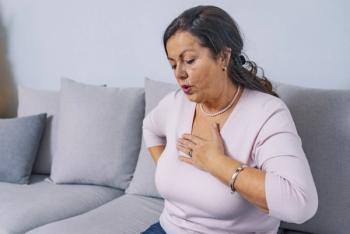
In an analysis of SWAN data, investigators found changes in menstrual cycle length within the 5 years preceding a woman's final menstrual period was associated with changes in carotid intima-media thickness and brachial-ankle pulse wave velocity.

Barb Dehn, NP, discusses vaccine hesitancy, soy and estrogen receptors, and a hospital in Tanzania dedicated to improving women's health through quality health care and education in under-resourced communities.
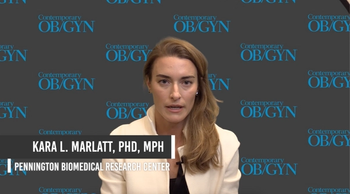
Kara L. Marlatt, PhD, MPH, tells Contemporary OB/GYN® about the exciting new anti-obesity and weight loss drugs to watch for.
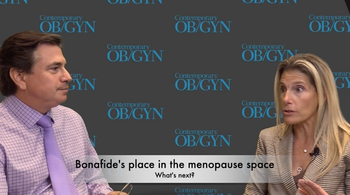
Michael Krychman, MD, sat down with Alyssa Dweck, MD, gynecologist and Bonafide medical advisor to catch up at this year's North American Menopause Society (NAMS) Annual Meeting.

A study published in The BMJ reveals that menopausal hormone therapy is not linked to an increased risk of developing dementia in women.

Premature menopause is significantly linked to eventual atherosclerotic cardiovascular disease (ASCVD), according to a research letter in JAMA Cardiology.

CRISPR gene-editing technology holds the potential to usher in a new age in medicine, according to a featured speaker at the North American Menopause Society Annual Meeting, being held this week in Washington, D.C.

We sat down with Glynis Ablon, MD, FAAD to learn about her research on nutraceuticals for hair growth in midlife.

New guidelines from the Centers for Disease Control and Prevention (CDC) for the screening of sexually transmitted infections (STIs) offer new ways to ask common questions.
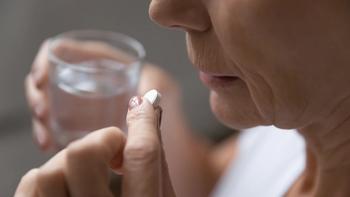
Cardiovascular disease (CVD) remains the leading cause of morbidity for women in the United States. Prior to the update in 2020, published in the Journal of the American College of Cardiology, there had been no formal guidelines from the American College of Cardiology (ACC)/American Heart Association (AHA) specifically addressing CVD in women since 2011.

When a woman goes through menopause, she is at accelerated risk for cardiovascular disease (CVD), according to the 2020 statement on menopause and CVD risk from the American Heart Association (AHA).
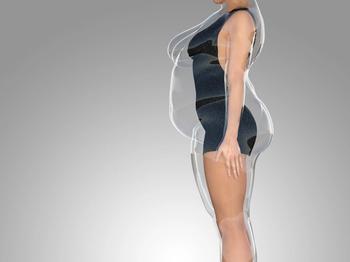
Many women gain weight during menopause. Aging and lifestyle are the main factors, and women generally become less active as they go through midlife. At any age, it is known that burning fewer calories increases weight and fat mass. But what can providers do?
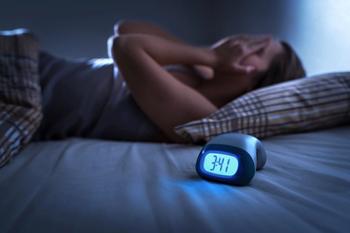
Rebecca Thurston, PhD, explains clinical research and strategies for undermining the power of vasomotor symptoms and insomnia to interrupt sleep.

Check in throughout the week for the latest coverage from the North American Menopause Society’s (NAMS) Annual Meeting, which is being held Sept. 22-25 in Washington, D.C.

This week, Contemporary OB/GYN® will be covering the North American Menopause Society’s (NAMS) 2021 Annual Meeting, which is taking place Sept. 22-25 in Washington, D.C. We spoke with NAMS President Hadine Joffe, MD, MSc about wellness at midlife and why it is crucial in menopause.

Successfully managing osteoporosis in postmenopausal women revolves around risk factors and risk-assessment tools for identifying women who are candidates for pharmacologic therapy, according to an updated position statement from the North American Menopause Society (NAMS).

A 12-week trial found implementing a dietary approach using a low-fat, vegan diet could help reduce the incidence of moderate-to-severe hot flashes in postmenopausal women.

An evaluation of multiple recommended eating patterns has found that intakes of legumes, dietary fiber, and vegetable protein is linked to lower risk of peripheral arterial disease (PAD), whereas intakes of unprocessed red meat, processed meat, and regular soft drinks are associated with higher risk.
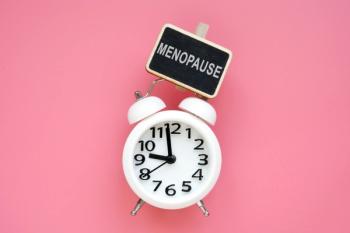
Besides sex hormone levels, predictors for the age at natural menopause (ANM) include irregularity of menstrual cycle, menopausal symptoms, life habits and socioeconomic factors, according to a retrospective study of 105 middle-aged women who kept bleeding diaries.

Preoperative vitamin D deficiency adversely impacted early functional outcomes after total knee arthroplasty (TKA) in postmenopausal women, according to a study from China.
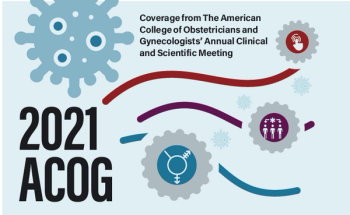
Significant updates occurred in women’s health issues while the world was in survival mode.

A study in the journal Menopause has found that the risk of de novo severe carpal tunnel syndrome (CTS) is significantly greater after bilateral oophorectomy performed in premenopausal women.

Women with a history of preeclampsia were nearly 4 times as likely to have a stroke in later life compared with women without a history of preeclampsia, according to an analysis of data from the Framingham Heart Study, which was conducted from 1948 to 2016.

Genetic factors predictive of reproductive aging also are linked to vasomotor symptoms (VMS), indicative of VMS having a polygenic architecture, according to an analysis of the Study of Women’s Health Across the Nation (SWAN) Genomic Substudy.